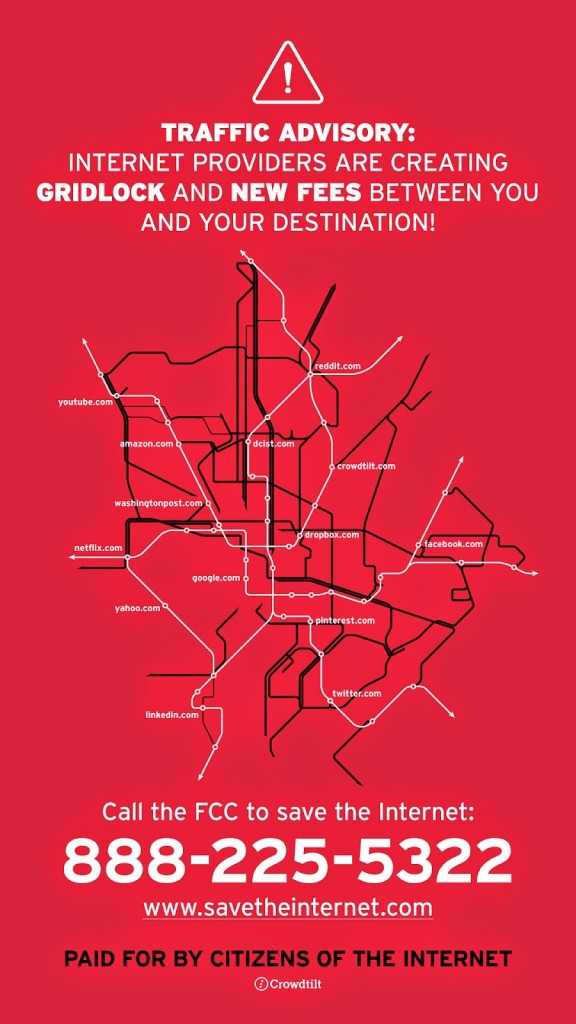It’s National Small Business Week, which recognizes the critical contributions of America’s entrepreneurs and small business owners.
More than half of Americans either own or work for a small business, and they create about two out of every three new jobs in the U.S. each year.
But this week, the Federal Communications Commission (FCC) has unveiled proposals that are decidedly unfriendly to small business. I normally don’t blog about governmental issues, but this one is really important to smaller and mid-sized businesses. The proposals involve network neutrality – an open internet that treats all network traffic equally – your sports blog or ESPN get delivered to the consumer the same way.
Why is this important?
The telephone and cable company ISPs say they want a “tiered” Internet. If you pay to get in the top tier, your site and your service will run fast. If you don’t, you’ll be in the slow lane. Now it won’t explicitly be called a slow lane, but if you have “paid prioritization” for certain content providers, where does that leave everyone else?
I have often talked about how the tools and technologies of the internet are a great opportunity for small and mid-size businesses because the playing field has been leveled. This proposal changes that. Pay-to-play has no business in a competitive internet. Consumers already pay their ISP to deliver internet content to them, and content creators also pay to have their content sent to those who request it (e.g. web hosting costs include access to the internet to deliver content). Allowing ISPs to put up a toll gate between content providers and the users who requested the content benefits no one but the ISPs who have a near monopoly in most markets in the US.
Consumers in the US (even in big cities) already pay much more for slower internet than most OECD countries. You can get a triple-pay package (phone, TV and internet at speeds of 100 Mbps for both uploads and downloads) for about $35 a month in Seoul for example. How much is your internet/TV bill and what speed are you getting?
Large companies that can afford to pay for a fast lane will gain more market share, but the additional costs will be passed along to consumers and businesses. This not only disadvantages smaller businesses from a competitive standpoint, but also will increase costs as businesses are increasingly dependent on business systems in the cloud for accounting, customer service, file sharing, online meetings and other core business functions. Costs for these services will increase or performance will suffer in a paid prioritization scenario. It will be much harder for new, innovative services to get a start.
Here is an explainer video from Mashable:
What can you do?
The FCC has opened up a period of public comment. Contact them and your legislators. Make your voice heard.


